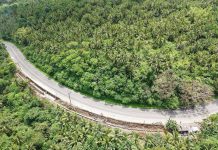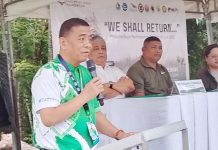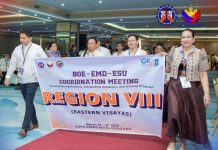TACLOBAN CITY – The city government here is developing more than 100 hectares permanent relocation site in northern villages to relocate families living in no-build zones, whose houses were completely destroyed by supertyphoon Yolanda.
Mayor Alfred Romualdez said at least 10,000 houses have been pledged by different organizations, about half of the 20,000 target families to be permanently relocated to safer grounds.
“We’re all working together to build better permanent homes. We cannot do this quickly given the extent of devastation, but we are still working in consonance to what we want to happen. We will not allow anyone to risk the lives of their families by building houses in danger zones,” Romualdez told reporters.
The city mayor said that at least 110 hectares have been acquired by the city government in Barangays New Kawayan and Sto. Niño. The city intends to buy 20 more hectares.
Although there were groundbreaking ceremonies held by some donors of housing units, the site is still need to be developed as they have flattened mountainous areas, the mayor said.
“Some of the lots have already been paid for by the city government. Since we are not financially capable now, help from the national government to acquire more lots is welcome,” Romualdez said.
The existing policy on housing projects is that the national government shoulders budget for site development, the local government is tasked to acquire the land, and donors build houses.
Romualdez also asked the Department of Public Works and Highways to deploy heavy equipment to facilitate land preparation activities.
Each housing unit has a lot of 36 square meters and floor area of 22 square meters.
Federico Anido, head of the city disaster risk reduction and management council, said portion of the permanent relocation site will be devoted for commercial development, public places, and roads.
“The new relocation site is very safe from rising sea waters and landslides. We just need to bring investments there for livelihood of housing beneficiaries,” he added.
Ground breaking ceremonies were earlier held by the Habitat for Humanity for 852 homes and the GMA Kapuso Foundation for 400 units.
Earlier, pledges were made by the Red Cross (5,080 houses), Integrative Center for Alternative Development (20 units), Zonta International (20 houses), and Lions Club (10 homes). (SARWELL Q. MENIANO)



